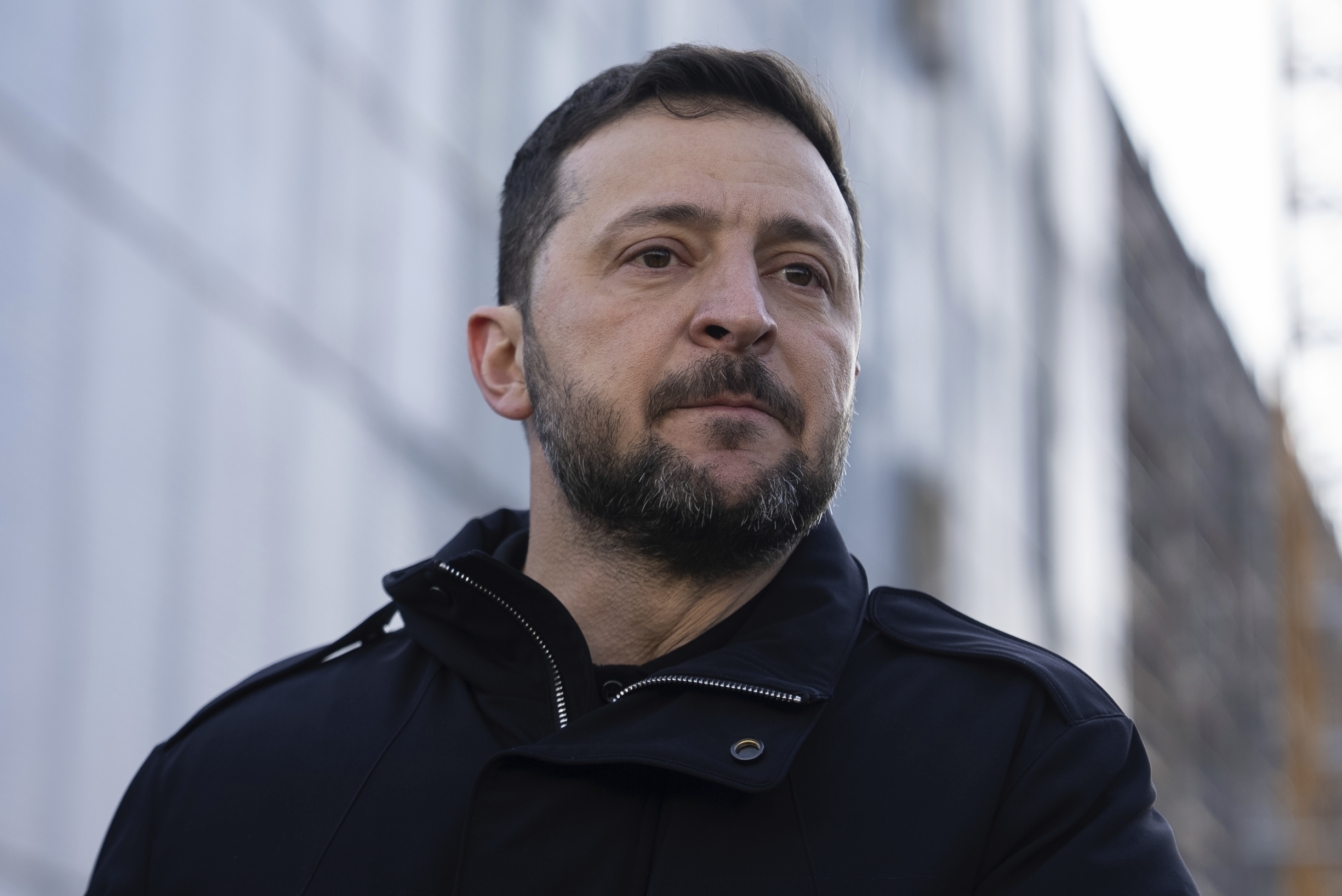All wars end with a document where both sides sign the conditions for peace. For Volodymyr Zelensky, this scenario could mean the end of an unimaginable stress process that he did not choose (and did not expect) when he ran as a candidate for president with his party, literally baptized as his television series: "Servant of the People."
Since the start of the large-scale Russian invasion, Zelensky has faced several assassination attempts (acknowledged by his own security service), as well as numerous campaigns against Russian propaganda, some even targeting his wife, Olena Zelenska, falsely linked to luxury trips and exorbitant expenses that never actually occurred.
Voices against him have also emerged from within Ukraine by his political adversaries. His clashes with Vitali Klitschko, former heavyweight champion and mayor of Kiev, or with former President Petro Poroshenko, recently sanctioned by Ukrainian authorities, are well known. These names are joined by his former advisor Oleksii Arestovych and even General Valerii Zaluzhnyi, whom Zelensky removed from war leadership last year to appoint him as ambassador to the United Kingdom.
Zelensky is currently facing the second major challenge of his political career. If the first was to remain in his position with Russians 15 kilometers from Kiev and galvanize his people's resistance, the second will not be as heroic but perhaps more complicated: maintaining a balance between territorial concessions to Russia, which to some extent seem inevitable, and ending the war by accepting the deal. In other words, he must navigate between making concessions to Moscow without being accused of treason by Ukrainians, while also knowing that if those concessions become unmanageable, there will be a cost because many Ukrainians, eager for the war to end, will also hold him accountable. Soldiers want to return home (including the Russians), and if they do not return, they will become upset.
Thanks to his charisma and a character perfectly crafted by him, an actor, Zelensky has enjoyed great international prestige. His diplomatic work denouncing Russian aggression and the imperial face of Vladimir Putin has been a success beyond Ukrainian borders; however, the president is much more controversial within Ukraine. The reasons are well known here: although he came to power with an anti-corruption and anti-establishment message, he has not managed to eradicate the entrenched corrupt practices in Ukrainian politics since the Soviet era. In the long run, this endemic corruption could pose a significant obstacle to Ukraine's entry into the European Union.
Another issue has been his toughness towards the opposition at a time when he could have opted for a national unity government in the style of Winston Churchill in 1940 (keep your friends close and your enemies closer). This has led to continuous friction and controversies where the state has lost energy that could have been needed on the battlefield.
Lastly, problems in the army have also garnered much criticism for the president. Beyond the bravery of his soldiers and the generosity of volunteers, which is beyond doubt, the organization of the Armed Forces has revealed significant gaps that may have cost irrecoverable enemy advances. This is compounded by a late and questionable conscription law that has not yet resolved, and may no longer do so, the difficulties in securing all defensive positions on the front lines.
It has been a couple of years since Zelensky's term ended, if the term had occurred in a country under peaceful circumstances. However, Russia decided not only to invade but also to destroy a large part of the cities in the east of the country, including thousands of schools. Moscow's propaganda, unexpectedly embraced by some Trump supporters, suggests that the Ukrainian president has clung to power without reason. But in this context of bombings, daily civilian casualties, and air raid sirens, it is not only impossible but possibly irresponsible to hold elections.
The martial law, voted by the Rada of Ukraine in the early days of the conflict, also allows for the suspension of elections, so Zelensky's situation, even without elections, is perfectly democratic until the end of the conflict allows for new elections to be called.
In recent days, some voices, mainly from more pro-Russian circles in the West, have suggested that Zelensky was going to be vetoed by Trump and forced to hold elections or resign for another candidate. This option is unthinkable for Ukraine, despite Zelensky having his opponents here. It will be Zelensky who negotiates the end of the war, if it comes, and after that, the diplomatic rumor in Kiev speaks of a golden exile in London for the current president. But if the side closer to Kremlin's theses intends for a pro-Russian to govern again in the house of illusions, it is out of touch with reality: present-day Ukraine will not vote for a pro-Russian at least for this generation.
Zelensky still has to close this chapter. His current goal is to sit at the negotiation table and not let anyone decide for him.
